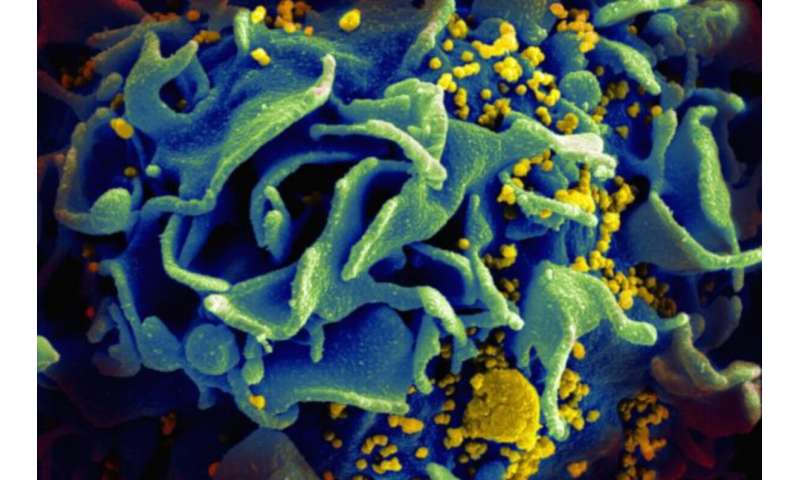
The impact and prevalence of heart disease and other critical comorbidities on an aging global population with human immunodeficiency virus (HIV) have emerged from a suite of articles in The Journal of Infectious Diseases that contains the first swath of important data from the world’s largest study of cardiovascular disease (CVD) prevention in people with HIV. This information from the ongoing National Institutes of Health (NIH)-funded study known as REPRIEVE (Randomized Trial to Prevent Vascular Events in HIV), in which Massachusetts General Hospital (MGH) is playing a key coordinating role, is giving the field of medicine an advance look at the disproportionate risk of comorbidities like CVD, chronic liver and kidney disease, physical function impairment and frailty, premature reproductive aging, cancer, and obesity in people with HIV from all regions of the world.
“With nearly half of all people living with HIV now over 50, the emphasis among health care providers has shifted over the past 20 years from keeping patients alive through antiretroviral therapy to providing the best possible care for secondary co-morbid conditions encountered over greatly increased lifespans,” says Steven Grinspoon, MD, chief of the MGH Metabolism Unit professor of Medicine, Harvard Medical School and co-principal investigator of REPRIEVE. “The release of this initial baseline data from REPRIEVE will help physicians and researchers to better understand the whole person impact of HIV, and ultimately to develop more effective preventions, treatment strategies and guidelines for cardiovascular risk management in this population. In a very real way, co-morbidities are the newest frontier of HIV.”
Sponsored by the National Heart, Lung, and Blood Institute (NHLBI) and the National Institute of Allergy and Infectious Diseases (NIAID), both part of NIH, REPRIEVE enrolled 7,770 participants from 2015 to 2019 across more than 100 clinical research sites in 12 countries and five continents, reflective of the ethnic, racial and gender diversity of the global HIV epidemic. This remarkable global collaboration, which also includes the AIDS Clinical Trials Group and the pharmaceutical industry, is expected to report its findings to the public in 2023. The study was cited last year in a JAMA Viewpoint by Anthony Fauci, MD, director of NIAID, and colleagues as pivotal to uncovering the mechanisms of, and potential treatments for, ischemic heart disease and other serious cardiovascular conditions in individuals with HIV.
Massachusetts General Hospital is serving as the clinical coordinating center for REPRIEVE while also coordinating data collection for the trial with the Harvard T.H. Chan School of Public Health. That role includes overseeing serial assessment of coronary atherosclerosis at 30 sites across the U.S. using the latest noninvasive CT angiography technology. “Imaging the specific patterns of coronary artery disease will help us to better stratify cardiovascular risk in the REPRIEVE population,” explains Udo Hoffmann, MD, MPH, professor of Radiology, Harvard Medical School and co-principal investigator of REPRIEVE.
While a primary goal of REPRIEVE is to reduce major adverse cardiovascular events in people with HIV through a cardiac prevention strategy, the global initiative is also assessing non-CVD comorbidities, many of which are characterized in the first release of data from the set of six articles published in The Journal of Infectious Diseases. One article, for example, reports that physical function impairment and pre-frailty are common among middle-aged people with HIV, and that body mass index (BMI) and physical activity are key modifiable risk factors that may prevent further decline in function with aging among this population. Another paper shows that reproductive aging in middle-aged women with HIV is associated with global burden of disease (GBD) region of enrollment, and may predispose these women to increased cardiometabolic risk. The papers also shed light on distinct patterns of antiretroviral use across the globe, unique associations of weight and immune function, and factors contributing to increased kidney dysfunction and increased ectopic fat deposition in the heart among people with HIV. New data on the participation of transgender participants and the cardiovascular risk associated with gender-affirming therapy in this population are also reported.
Source: Read Full Article